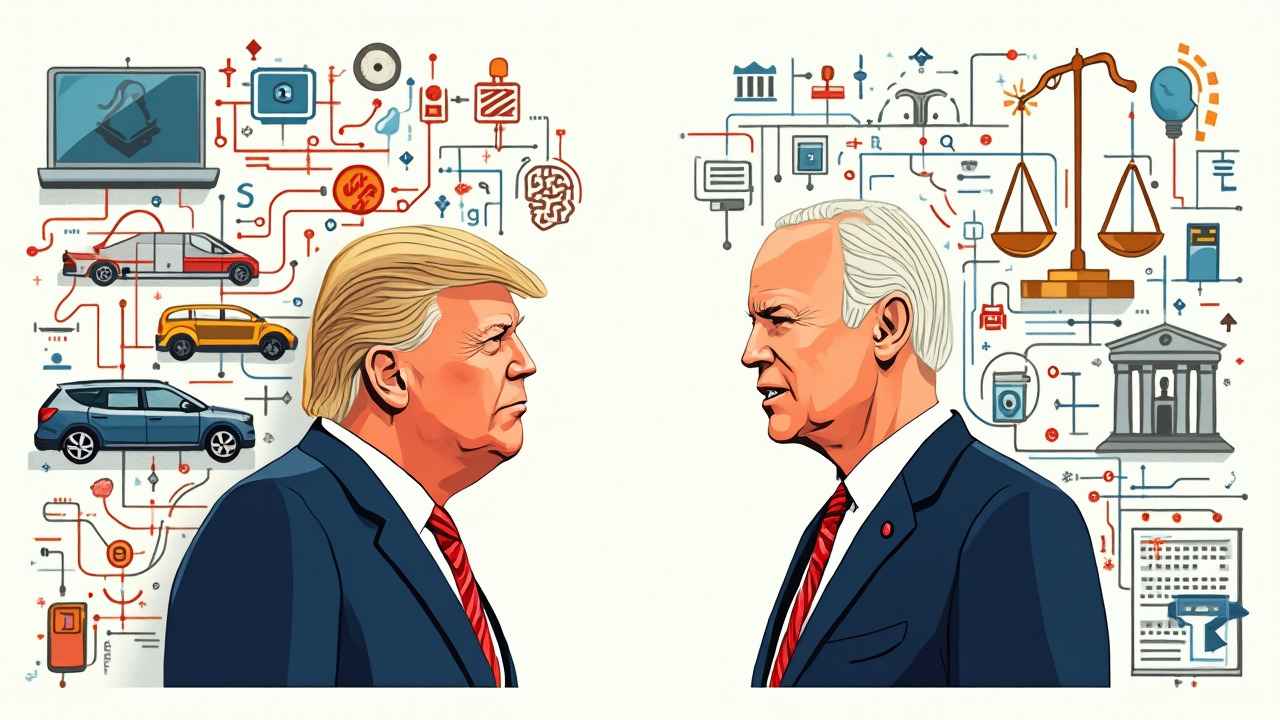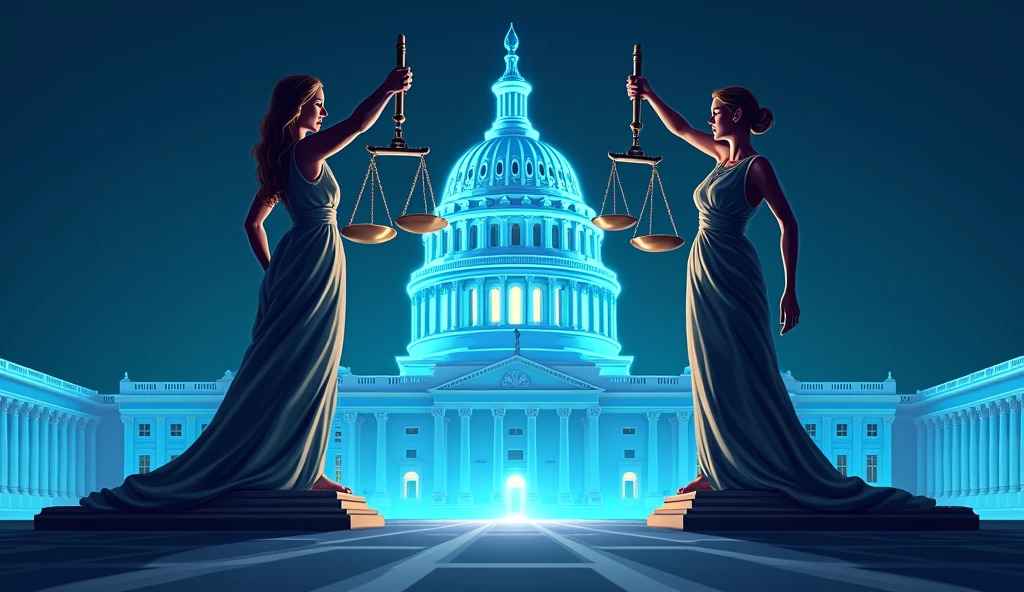The Tech industry has long enjoyed a relatively hands-off approach from the federal government, with both Republican and Democratic administrations recognizing the importance of innovation and technological advancement to the nation’s economic growth. However, recent developments in artificial intelligence (AI) have prompted the Biden administration to reconsider this laissez-faire approach, much to the chagrin of industry giants like Nvidia.
In a recent statement, Nvidia criticized the Biden administration’s new AI restrictions as “misguided” and praised former President Trump’s more lenient policies. These criticisms raise important questions about the role of government in regulating emerging technologies and the impact such regulation may have on innovation and economic growth. 
Key Policy Differences
| Trump Administration Policy | Biden Administration Policy |
|---|---|
| Emphasized industry self-regulation | Seeks stricter federal oversight |
| Generally supportive of deregulation | Tighter regulations on AI technologies |
| Encouraged 5G development | Focused on addressing potential security concerns |
| Maintained status quo on net neutrality | Aims to reinstate net neutrality regulations |
Contrasting Tech Policies of Trump and Biden Administrations
In addition, here are some key areas where the two administrations differ in their approach to tech policy:
- Autonomous vehicles: Under the Trump administration, the focus was on streamlining regulations and reducing barriers to entry. The Biden administration, meanwhile, aims to develop comprehensive safety and performance standards.
- Facial recognition technology: The Trump administration took a more industry-friendly approach, while the Biden administration seeks to address civil liberties concerns through new rules and regulations.
- Data privacy and cybersecurity: The Trump administration prioritized industry-led initiatives, while the Biden administration emphasized the need for robust federal legislation to protect consumers.

“We are concerned that these misguided restrictions may stifle American innovation and the many benefits that AI will bring to the world. We believe it’s essential for the U.S. to maintain its global leadership in AI research and development, and we urge the administration to reconsider these restrictions.”
Industry Response and Nvidia’s Perspective
Evaluating the Impact on the Tech Industry Nvidia’s criticisms reflect broader concerns within the tech industry about the potential consequences of overregulation. Many experts argue that excessive government intervention could hinder innovation, discourage investment, and ultimately undermine U.S. competitiveness in the global market.
However, others argue that stricter regulations are necessary to address public concerns about issues like privacy, security, and the ethical implications of emerging Technologies. The Biden administration’s new AI restrictions, for example, aim to prevent potential misuse of AI systems by bad actors and ensure that these powerful technologies are developed and deployed responsibly.
Balancing Innovation and Regulation
Finding a Balance The challenge for policymakers is to strike an appropriate balance between fostering innovation and protecting the public interest. Some experts have suggested that a more nuanced, risk-based approach to regulation could help achieve this goal.
Under such an approach, regulations would be tailored to the specific risks and challenges presented by different technologies and use cases, rather than imposing a one-size-fits-all framework. This would allow for continued innovation while addressing genuine concerns about potential harms and negative consequences.

Conclusion
As the debate over the appropriate role of government in regulating the tech industry continues, policymakers and industry stakeholders need to work together to find a balanced solution. By fostering open dialogue and collaboration, it may be possible to develop regulatory frameworks that support continued innovation while protecting the public interest.
FAQs
Q: What are the primary differences between the Trump and Biden administrations’ tech policies?
A: The Trump administration emphasized industry self-regulation and encouraged development, while the Biden administration seeks stricter federal oversight and tighter regulations on AI and other emerging technologies.
Q: Why is Nvidia criticizing the Biden administration’s new AI restrictions?
A: Nvidia argues that these restrictions may stifle innovation and discourage investment in the U.S. tech industry. They believe that the U.S. should maintain its global leadership in AI research and development.
Q: What is a risk-based approach to regulation, and how could it help address the challenges presented by emerging technologies?
A: A risk-based approach involves tailoring regulations to the specific risks and challenges presented by different technologies and use cases. This can help foster continued innovation while addressing genuine concerns about potential harms and negative consequences.
Q: Why is finding a balance between innovation and regulation important for the U.S. tech industry?
A: A balanced approach to regulation can help maintain U.S. competitiveness in the global market, protect the public interest, and support continued innovation in the tech industry.





